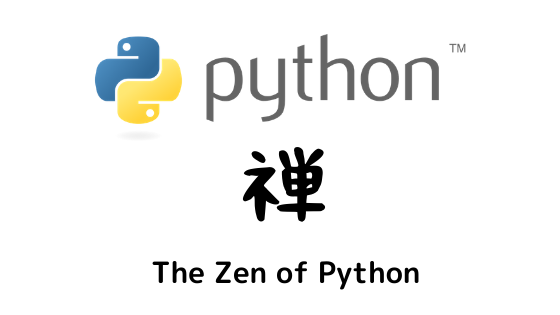

> seem to be a single document that sums up that "aesthetic," but rather it > appreciating the nice balance and heft Guido gave to it. > but the more I use and learn about the language, the more I find myself Here's an excerpt from Peters' original message: " There you go: 20 Pythonic Fec^H^H^HTheses on the nose, counting the one I'm leaving for Guido to fill in." Several messages later, Peters answers outlining the 19 principles, and ends with: Off and contemplate when the "fix Python now" decibels become a bit Aĭistillation of Python Zen is what I'm talking about - something to go Recommendations for operating within the spirit of the language. "Elements of Style" for Python, which suggests fundamental idiomatic What I have in mind is sort of a very brief Strunk-&-White-like It into uncomfortable positions - (implement closures, etc.). Python from other languages and immediately want to find a way to bend Sets out the 10-20 prescriptives they might offer to those who come to Paper - call it "The Python Way" for lack of a better title - which Would both Guido and TIm Peters be willing to collaborate on a short

I'd like to suggest something as a sort of balm for those of us whoĬome here to try to learn to work with, rather than against, the grain Tends to appear piecemeal, over time, mostly in the Wisdom of Chairman Single document that sums up that "aesthetic," but rather it Not that Python shouldn't be open to critique, but the more I useĪnd learn about the language, the more I find myself appreciating the (Have you noticed that, during such periods, both Guido and Tim Has been approaching my pain threshold, as it does once in awhile. Yeah now that you mention it, the "let's fix Python" discourse > language is more important than using it. > sure looks like the "community" thinks that changing the Let's go back to June 3rd, 1999 and dig into the original mail exchange where Peters first shares the principles.įollowing a lengthy discussion around the then upcoming Python 2.0 and design decisions behind the language, a message from Patrick Phalen serves to set the stage: On Thu,, Fredrik Lundh wrote Namespaces are one honking great idea - let's do more of those! If the implementation is easy to explain, it may be a good idea. If the implementation is hard to explain, it's a bad idea. There should be one- and preferably only one -obvious way to do it.Īlthough that way may not be obvious at first unless you're Dutch.Īlthough never is often better than *right* now. In the face of ambiguity, refuse the temptation to guess. Special cases aren't special enough to break the rules. They were written to capture the guiding principles behind the design decisions for the early versions of the language. The Zen of Python is a set of 19 principles written by Tim Peters, one of the major contributors to the development of the Python language.


 0 kommentar(er)
0 kommentar(er)
